EYFS
Our EYFS (Early Years Foundation Stage) Philosophy
At Violet Way Academy, we take time to get to know each individual child well, building good relationships so that we can best understand their needs. Our approach gives the children opportunities to learn, make choices and decisions and develop self-awareness, confidence and independence. This learning takes place in an atmosphere of caring and warmth, where each child and their individual needs and achievements are recognised, valued and praised.
The following information provides an overview of our EYFS Reception Curriculum offer. For more detailed information, please refer to our EYFS Reception Policy.
EYFS Curriculum Intent
In line with our whole school five key curriculum drivers (Aspirations, Collaboration, Connections, Creativity and Expression), our EYFS Reception Curriculum has been designed to support pupils to develop confidence and independence and to persevere in the face of challenge. The design of the curriculum encourages pupils to build respectful relationships and communicate effectively with each other. It is carefully planned to enable pupils to make connections between home and school life, prior knowledge and new learning and begin to make links with the wider community. Children are encouraged to explore their own ideas, fascinations and interests and express their individuality, communicating their thoughts and ideas verbally, through drawing, mixed media and in writing.
Our ambitious EYFS Reception curriculum aims to enable all children to develop the knowledge, skills and understanding they should acquire by the end of the Reception year in order to become confident, self-assured, independent learners, ready for KS1.
Our EYFS Curriculum has been designed to:
- support children’s transition to Reception (and then KS1)
- reflect our beautiful woodland environment
- teach the children how their environment compares to other places, cultures and nature in their local community and other parts of the world
- learn about themselves, and other important people in their lives, including in the school, their family and the local community
As a result, each planned topic is included in the curriculum for very specific reasons, building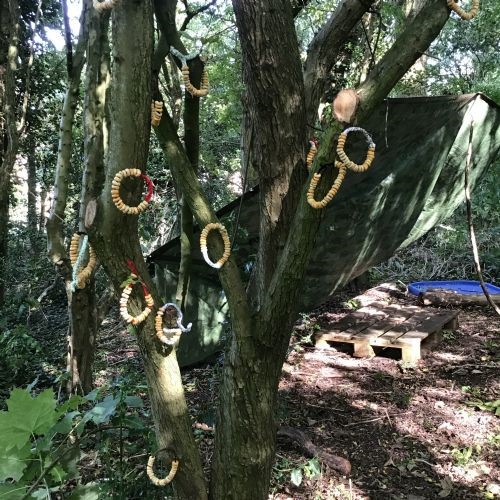 upon children’s prior knowledge. We want to ensure that all children leaving the Reception year are ready to start the Violet Way Academy KS1 curriculum. Although our curriculum includes six half-termly topics, we are responsive to the children’s learning needs and interests and will adapt our EYFS Reception curriculum in order to meet the needs of our youngest learners. All the topics have resources and activities ready to use in the continuous and enhanced provision. The topics are always introduced with a good-quality text, which helps children learn the value and importance of books and reading and promotes reading for pleasure. Our EYFS curriculum is enhanced by the provision of specialist teaching in Forest Schools and Music.
upon children’s prior knowledge. We want to ensure that all children leaving the Reception year are ready to start the Violet Way Academy KS1 curriculum. Although our curriculum includes six half-termly topics, we are responsive to the children’s learning needs and interests and will adapt our EYFS Reception curriculum in order to meet the needs of our youngest learners. All the topics have resources and activities ready to use in the continuous and enhanced provision. The topics are always introduced with a good-quality text, which helps children learn the value and importance of books and reading and promotes reading for pleasure. Our EYFS curriculum is enhanced by the provision of specialist teaching in Forest Schools and Music.
EYFS Framework
The Early Years Foundation Stage curriculum in Reception incorporates the statutory requirements of the ‘Statutory Framework for the Early Years Foundation Stage’, which sets the standards for care and learning in the early years. Our EYFS curriculum offer ensures that pupils in Reception experience a range of learning opportunities, which best meet their developmental needs as well as taking into account their individual interests.
We utilise the EYFS Statutory Framework, Development Matters (2020) and the updated Birth to 5 Matters to ensure we are knowledgeable about how children typically develop and how we can support them further where necessary. We want children to acquire knowledge and develop skills typical for their age. We create purposeful and exciting learning experiences, well-modelled adult-led activities and build warm, genuine relationships with our youngest learners, in order to support their learning journey. The curriculum for Reception is planned to enable the children to acquire knowledge, demonstrate their understanding and learn skills through the seven areas of learning. All seven areas of learning and development are important and inter-connected. The three prime areas are particularly important for building a foundation for igniting children’s curiosity and enthusiasm for learning, forming relationships and thriving. There are also four specific areas, through which the three prime areas are strengthened and applied.
Prime Areas
- Communication and Language
- Personal, Social and Emotional Development
- Physical Development
Specific Areas 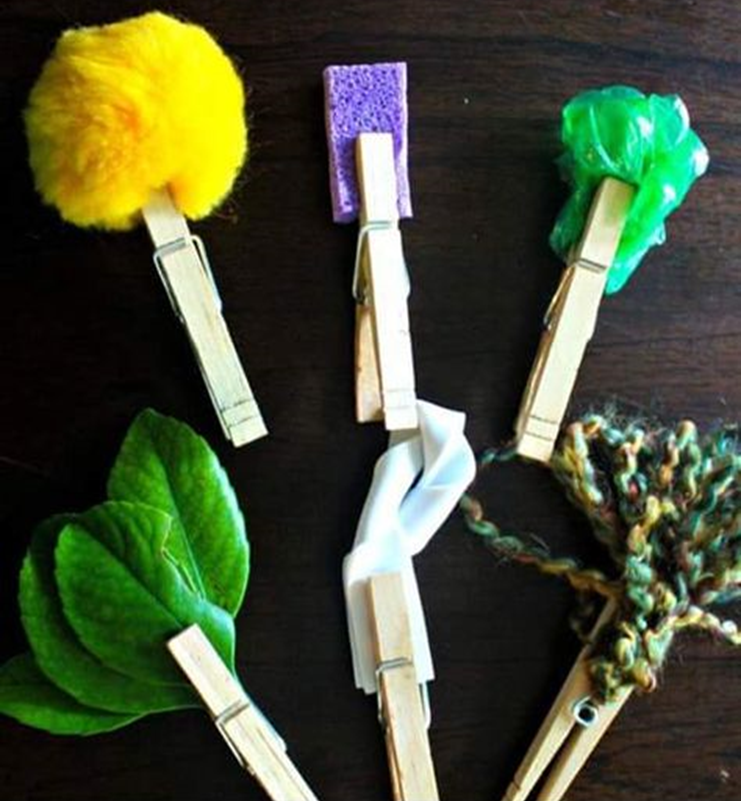
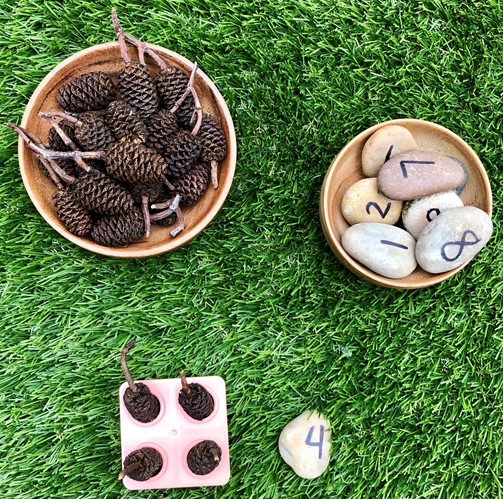
- Literacy
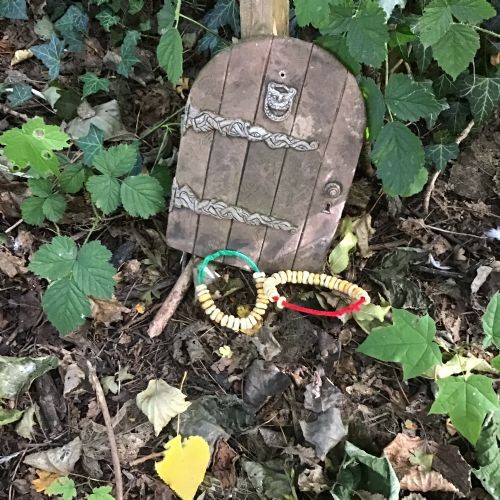
- Mathematics
- Understanding the world
- Expressive arts and design
We will, as per the statutory framework, adopt the educational programmes. You can read about how we will work within the structure of these educational programmes to meet the needs of our pupils in our EYFS Reception Policy.
EYFS Curriculum Implementation
In the early years of life, children learn through play. It is through play that children make discoveries about themselves and find out about the world around them. By providing a range of play-based activities in EYFS, we aim to encourage learning through excitement, fun and discovery.
From what we know about how children learn, we also recognise that there is a need for direct teacher-led activities to ensure that children gain essential knowledge. Adult-led learning activities are carefully modelled and children are given sufficient time, support and resources to repeat and practise what they have been taught. We ensure that our children experience a good balance of child-initiated and adult-directed learning activities. At Violet Way, children in Reception will have the opportunity to learn in a variety of ways, including child-initiated learning, whole class teaching, small-group teaching, investigations, problem-solving, paired talk and independent learning.
EYFS Curriculum Impact
We anticipate that our EYFS curriculum will ensure that children are equipped with the knowledge, skills and understanding that provide them with an excellent start to their KS1 education. During their time in Reception, their individuality is valued and each and every child has every opportunity to achieve, building on their own personal strengths, based upon interests and values whilst learning in EYFS and beyond. Any children not making sufficient progress are identified early so that we can adjust our provision or provide additional intervention. The overall impact of the curriculum will be to enable pupils, from their different starting points, to make good progress. From their starting point to transitioning into Year 1, they will make good progress, across all seven areas of learning, academically, emotionally, creatively, socially and physically. Our intended impact in relation to our curriculum drivers:
Aspirations – Children will become confident, independent learners, who persevere in the face of challenge. They will be given opportunities to set and achieve their own goals across all areas of learning. They will learn about ‘Superheroes’ in their own family, in school and within the local community, developing their understanding and appreciation of how we help each other to be the best we can be. They will aim high, developing their understanding that our vision to 'Reach for the Stars' is about setting ambitious goals and working hard to achieve them.
Collaboration - Children will build respectful relationships, developing the ability to share, take turns, communicate effectively and take others needs into account. They will learn to be patient and consider the feelings of others. They will take shared responsibility for looking after their classroom environment and they will work together to achieve shared goals. They will form positive partnerships, for example working with a talk partner to share ideas and talk about their learning.
Connections – Children will make positive, lasting relationships with adults and their peers. Adults will support them in making connections between prior knowledge and new learning, building their understanding. They will make connections with each other, their class teacher and teaching assistant, other adults in school and people within their local community. They will connect with their learning environment, confidently using the resources and equipment to support their independent learning and they will connect with nature in our beautiful woodlands environment.
Creativity – Children will be inspired by what the world around them and the wider world has to offer. They will be able to demonstrate their creativity through music, dance, role-play and art and design. Children will have the independence to create their own masterpieces. They will be able explain their ideas and processes for their own creations, evaluate them (talking about what they like and what worked well) and begin to suggest ways of improving their own work.
Expression – Children will share their thoughts and feelings in a range of ways, whether that be verbally, visually through drawings, models, creations or in writing. They will show awareness of their own feelings and those of other and express their feelings and emotions in appropriate ways, regulating their behaviour. Children will ask questions and use talk to make plans, express ideas, explain their thinking and hold back-and-forth conversations with peers and adults.
Assessment in Early Years
During Reception, the staff work alongside your child to support their development. Your child's progress and attainment is assessed through observations in the form of their learning and development. Your child's achievements in the EYFS form the starting point for their primary education. We take into account information provided by parents about their child; encouraging parents contribute to their child's school observational records. We also encourage parents to provide staff with information about their child’s interests and experiences at home, for example, celebrations, special events, visits they have been on, or things in their environment they have taken an interest in, so we can plan meaningful activities for them.
At the start of the year, Reception will be assessed using the Reception Baseline Assessment. During a short one-to-one session with their teacher or teaching assistant, your child will do a number of practical and interactive tasks. The tasks are carefully designed to assess early mathematics, literacy, communication and language skills. Further information in the PDF below.
In Reception we use a system called Tapestry. This system will be predominantly used for you to share special achievements and victories your child may have achieved at home. For example, this might be letting your child’s class teacher know when your child can ride their bike without stabilisers, how they shared their toys with their sibling or how they counted the five apples in the fruit bowl. Your teacher would like to celebrate your child’s home victories and these will be added to their learning journeys. We believe in holistic learning and understand that children do not stop learning just because they are at home. It is important for you to capture these moments and share them through Tapestry so that we can celebrate these achievements with your child and create a tailored curriculum.
In school, the majority of our time is spent on having conversations with your child, playing with them, interacting with them and teaching them new skills and concepts. In our interactions with the children, we respond to our own day-to-day observations to support their progress and development. The EYFS Framework 2021 is clear that assessment should not entail prolonged breaks from interaction with children nor lots of physical evidence. When assessing children’s progress, we will be able to draw upon our knowledge of each child and our own professional judgements. Parents will be kept up-to-date with their child’s progress and development through parent meetings and at least one update on Tapestry per half term to celebrate their learning in school that half term.
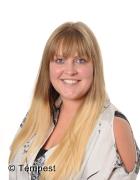
EYFS Lead
